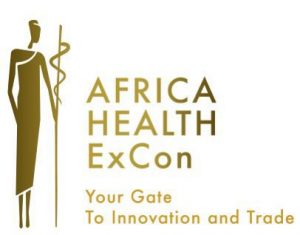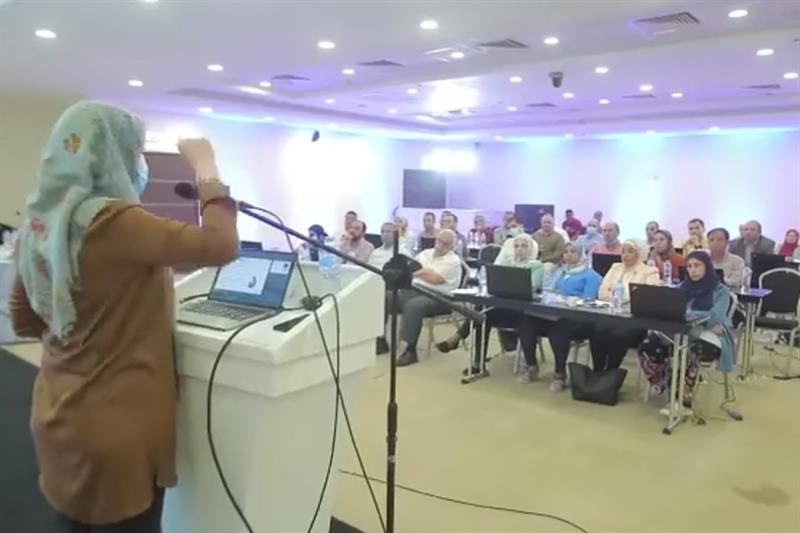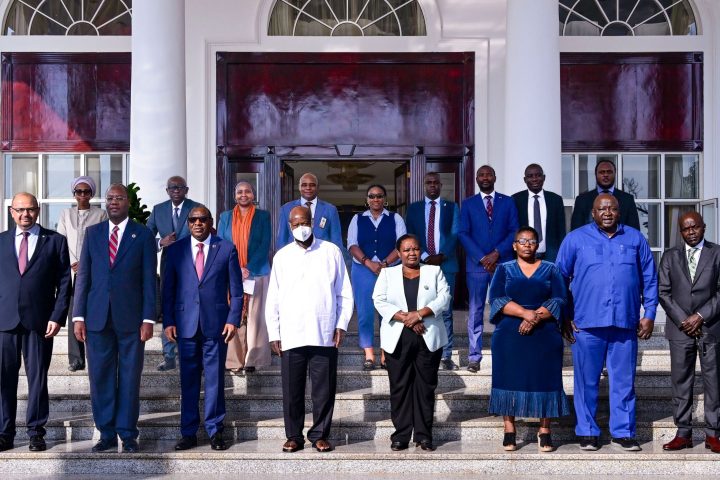Health experts have proffered pragmatic ways to reposition the African health system and equally harness the investment potentials of the sector in the continent.
This was the trust of the first edition of the Africa Health ExCon Conference & Exhibition, a three-day conference held from 5th to 7th June, 2022. It is an initiative of the Egyptian authority for Unified Procurement, Medical supply, and the Management of Medical Technology (UPA) under the auspices of H.E. President Abdel Fattah El-Sisi.
Join our WhatsApp ChannelThe participants at the conference also launched an initiative to boost African capabilities in producing vaccines to cater to the healthcare needs of people on the continent.
The conference/trade fair held at Al-Manara International Conference Centre in New Cairo has the objectives of: refocusing the minds of health and pharma businesses to Africa’s investment potential; connecting the health care value chain to a fast developing market; driving the healthcare industry to Africa through the right sourcing of products and equitable distribution and generally expand African human and financial capabilities to produce vaccines, medical tools, and supplies by 2030.
More than 350 companies operating in more than 102 countries took part in the conference, unveiling the latest medical technologies and outlining the best practices for sustainable healthcare on the continent.
The conference included 350 sessions and 20 workshops featuring more than 800 international speakers and medical experts, with the aim of showcasing the latest technologies in the field of medicine as well as initiatives that support Africa ExCon as a sustainable platform that connects international healthcare partners.

A number of sessions were held on the third day to address topics of major importance, among which are unified procurement and its impact on the efficiency of public spending, the role of pharmaceutical supplying and supply chain in overcoming challenges, gastroenterology, and the burden effect of end-stage liver disease on health in Africa. Other sessions highlighted the prominent role of curative tourism, as well as the mechanisms adopted to drive the pioneering transition in Africa’s healthcare system and Egypt’s healthcare reform.
Former Minister of Health, Dr. Adel Adawy stated that the COVID-19 pandemic revealed the necessity of ensuring sufficient drug supply as well as the important role of the supply chain. He also stressed that Africa needs to set a clear action plan to overcome such challenges.
Dr. Gamal El Leithy, Pharmaceutical Chamber Chairman harped on the abundance of Africa’s potential in the pharmaceutical sector, stressing the need for further expansion of pharmaceutical manufacturing through utilizing the available facilities and resources to meet daily demand in the continent.
A session held on the third day under the title “Health System Reform in Egypt” anchored by Dr. Ahmed Sobky, the Head of the General Healthcare Authority and Assistant Minister of Health, Egypt, underscored the importance of Egypt’s comprehensive health insurance law, expecting that it would achieve notable transition in North African country’s medical sector. He also stated that within the framework of Egypt’s vision 2030, all the citizens will enjoy a safe and healthy life through an integrated medical system that ensures accessibility, efficiency, and excellence.
Sobky added that the General Healthcare Authority has already set a roadmap for providing comprehensive medical insurance coverage through upgrading the health infrastructure, referral system in family medicine, quality and accreditation, comprehensive health insurance, digital transformation, medical training, awareness, and media communication, as well as PPP.
He explained that Egypt’s strategy with regard to healthcare mainly focuses on ensuring 100 per cent comprehensive health insurance coverage by 2030, compared to 58 per cent by the end of 2021. Further, the per capita spending is planned to increase to $600, compared to the current value of $152. Additionally, the capacity of hospitals will reach 30 beds for every 10,000 Citizen for 14.6 beds during the current period.
Dr. Hesham AbouStait, the UPA Vice Chairman, identified the role of the Procurement Authority in providing medical supplies and equipment for all the public health entities. He also highlighted that Covid 19 outbreak since 2020 has been a challenge for the UPA, as it led to a shortage of health supplies. However, the medical inventory of ventilators and equipping intensive care units ensured the preparedness of Egypt’s healthcare sector for overcoming the pandemic. He also referred to the strategic inventory of drugs and medical supplies, as well as the cooperation between the authorities concerned with the comprehensive health care system to fulfill the demand rate.
Angeliki Katsapi, Director of TEMOS HELLAS International Foundation for Health Accreditation – Germany, delivered a presentation on the role of international quality standards and accreditations in medical tourism destinations.
Katsapi stressed that countries classified as medical destinations must observe the highest standards of quality, safety and security, and obtain appropriate accreditations to sustain their position among tourists.
She added that compliance assessments and accreditation programs reduce average risks, protect patients, and ensure that safety and security standards are verified for foreign patients at treatment destinations. Then she presented an overview of Temos International, and its accreditation services for health facilities, in addition to the Temos Hospital, which provides high-quality health care.
One of the recommendations in the conference is implementing training courses for healthcare providers in cooperation with the World Health Organisation (WHO) over the next two years and publishing a multi-language booklet in 2024, with the most important educational materials taught in this field to be used continentally.
The conference also called for a continental strategy to use Artificial Intelligence in the medical field as well as the launching of a unified database between all African countries to facilitate continental cooperation in medicine on the level of experts and countries.
According to Acting Health Minister Khaled Abdel-Ghaffar, Egypt will host the second edition of Africa Health ExCon on 8 June 2023.

















Follow Us